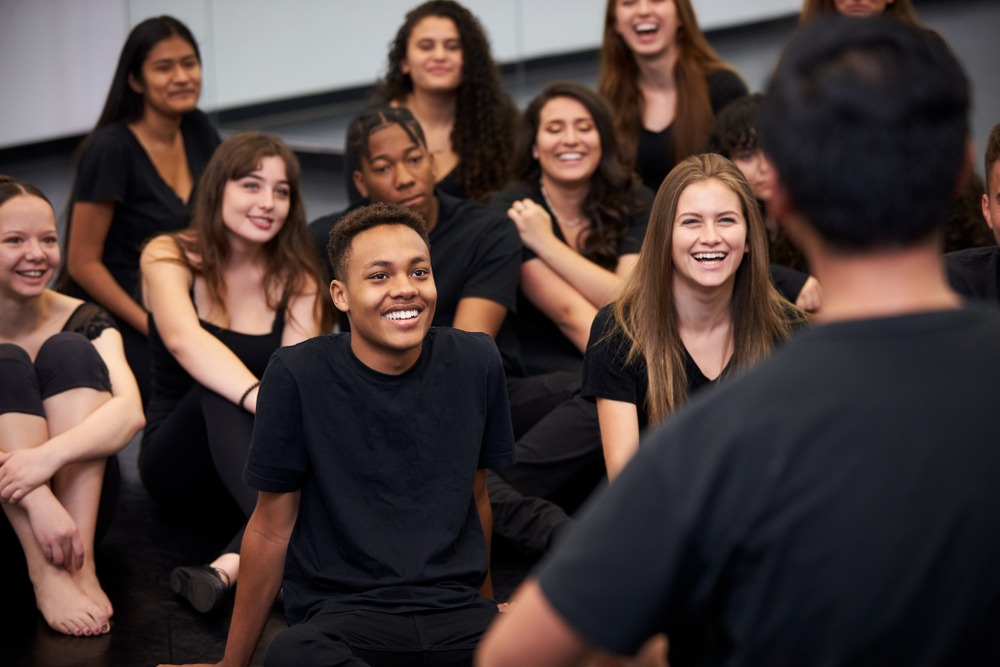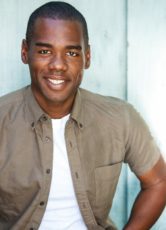
I was speaking with a group of television and film directors and asked them what are the top 3 things they look for when watching actors audition. One of those items we agreed was essential: “listening and reactions.” Here, we’ll dive in and discuss why that is.
The reason was explained this way: Scenes are put together in post-production. Until that time, it’s not entirely clear when the director is going to need a reaction shot from an actor to liven up or help explain a scene. So in the audition, they’re looking closely to make sure that the actor doesn’t go flat – even for a moment – because that may be precisely the moment that your reaction is needed when a scene is being constructed.
They tell me that if an actor gives a solid reading, it’s obvious they know the requirements of the material and are skilled at bringing the words to life – even if it’s not exactly what they envisioned. On top of that, the actor has reactions that spark with honest, energetic life.
They’ll hire that actor over the actor who came closer to their vision in the reading but didn’t listen and react as well.
They figure that you can always direct a good actor to say a line differently, but it’s not as possible to direct them to be more compelling in their reactions.
As one of the directors said, “It’s like telling someone to be more interesting – and we don’t have time for that.”
They also agreed that in an audition, the focus and stillness that deep listening brings draws them into the reading and allows them to become fully involved with the actor’s emotional life through the intensity of their reactions. This makes them feel that they are already working with the actor.
This is in stark contrast to the actor who isn’t as focused on listening and reacting. This actor not only doesn’t draw them in, but they also appear to be reading at them, not speaking and listening with them.
Another positive benefit of deep, revealing listening appears when/if the audition is being taped. When directors are watching taped auditions it’s a two-dimensional experience. The actors who become contenders for the role are the ones who feel as if they are actually in the room with them.
These are the actors whose listening is so specific and powerful and whose reactions are so alive and original that they bridge the distance that the technology creates so that even if the director is watching them on an iPad in New York, they feel the actors’ specific energy and spark.
In order to have these jobs getting moments of reaction, you need a way of working that allows you to have the confidence to take the moments and to live in them. Most actors speed through the piece believing that it’s only their words that matter, and yet any director will tell you that it’s the reactions that are the actions of the scene.
Watching someone talk is not half as interesting as watching how those words are affecting another human being. It takes awareness, skill and guts to work this way – but it’s the only way to work if you want to book the job.
In closing, it’s good to remember that strong listening and reacting are not things that you can just pull out of thin air. The body goes to what it’s used to – and if the body isn’t used to the stillness and focus of listening in your daily life, it won’t go there in your work.
Paying attention to someone to the degree that you take in their words and feel them on multiple levels is actually pretty rare. Most people have mastered the art of “half listening:” listening just hard enough to plan their response. That’s not the type of listening that prompts the reactions that get jobs.
Practice in your daily life. Make a commitment to take people in as deeply as possible. See if you can turn your brain off and listen from the neck down. Feel your reactions in your body and let them pierce your heart.
As you continue to do this, you’ll find that your body will start to relax into a still, focused and open-hearted place that you can now access not only in your life but in your work.
And when this happens in your work, the people in the room will not just hear you but see you.
Remember, it’s the eyes that are the windows to the soul – not the mouth.
As we were wrapping up the discussion, we decided to see if we could create one sentence to sum up the importance of listening and reacting in the audition. Here’s what we came up with:
What you do with the words will get the director’s attention – but it’s what happens in your reactions that will get you the job.
Craig Wallace’s background in script development combined with his 20+ years of coaching actors enables him to find the job getting moments that others miss. His expertise in breaking down text and years of coaching experience has made him “L.A.’s go to private coach.” Sign up for his group or private classes at wallaceauditiontechnique.com
Want to land your next great acting role? Sign up or log in to Casting Frontier and start auditioning today!
You may also like:




